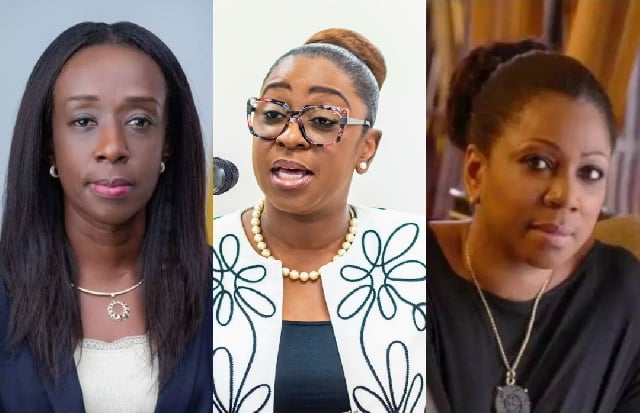Kelvin Taylor, a prominent Ghanaian journalist based in the United States and host of “With All Due Respect” on Loud Silence TV, has launched a blistering critique of the National Democratic Congress (NDC) for retaining appointees from the former New Patriotic Party (NPP) administration in key government positions. Taylor’s condemnation centers on the perceived incongruity of these individuals continuing to hold influential roles after the electorate’s clear rejection of the NPP in the 2024 general elections. He argues that their retention undermines the NDC’s core values, disrespects the party’s loyal base, and raises serious questions about the new administration’s commitment to representing the will of the people.
Taylor’s accusations specifically target three high-profile women: Saratu Atta, CEO of the Chartered Institute of Banking and former Special Assistant to ex-President Nana Akufo-Addo; Delese Mimi Darko, CEO of the Food and Drugs Authority; and Yvonne Nana Afriyie Opare, CEO of the Ghana Airport Company Limited. He alleges that these women were not merely passive participants in the previous NPP administration but actively involved in the 2024 campaign of former Vice President Mahamudu Bawumia, a key figure in the defeated NPP government. Their continued presence in positions of authority, Taylor contends, is a betrayal of the trust placed in the NDC by the electorate and an affront to the many qualified NDC members who could effectively fill these roles.
Taylor’s central argument revolves around the concept of political loyalty and the expectation that a new administration will appoint individuals who align with its ideological principles and policy objectives. He asserts that retaining officials from the previous administration, particularly those actively involved in the opposition’s campaign, creates a conflict of interest and raises doubts about the NDC’s commitment to implementing its own agenda. By allowing these individuals to remain in power, Taylor argues, the NDC is effectively legitimizing the policies and practices of the previous government, which the electorate demonstrably rejected.
Furthermore, Taylor raises concerns about the potential for internal sabotage and the erosion of public trust. He suggests that these retained officials may be more loyal to the NPP than the NDC and could actively undermine the new government’s efforts. This, he warns, could lead to policy paralysis, inefficiency, and ultimately, a loss of public confidence in the NDC’s ability to govern. The perceived lack of commitment to appointing loyal NDC members also risks alienating the party’s base, who may feel their sacrifices and contributions are being disregarded.
Taylor’s critique escalates beyond mere disapproval; he issues a direct and urgent call to action, demanding the immediate dismissal of the three named officials. He sets a one-week ultimatum for President John Dramani Mahama to act, threatening to unleash what he describes as his “arsenals” on the government if his demands are not met. This ultimatum underscores the seriousness of Taylor’s accusations and his determination to hold the NDC accountable for what he perceives as a betrayal of the electorate’s trust. The phrasing of his threat, while ambiguous, suggests a potential campaign to expose alleged wrongdoing and further criticize the government through his media platform.
The controversy sparked by Taylor’s accusations highlights the complex and often contentious nature of political appointments in the aftermath of an election. While some argue for continuity and the retention of experienced personnel regardless of political affiliation, others, like Taylor, emphasize the importance of political loyalty and the need for a new administration to reflect the mandate received from the electorate. This debate extends beyond the specific individuals named by Taylor, raising broader questions about the balance between experience, expertise, and political alignment in government appointments. The response from the NDC and the subsequent actions taken by President Mahama will undoubtedly have significant implications for the party’s image, its relationship with its base, and the overall political landscape of Ghana.


